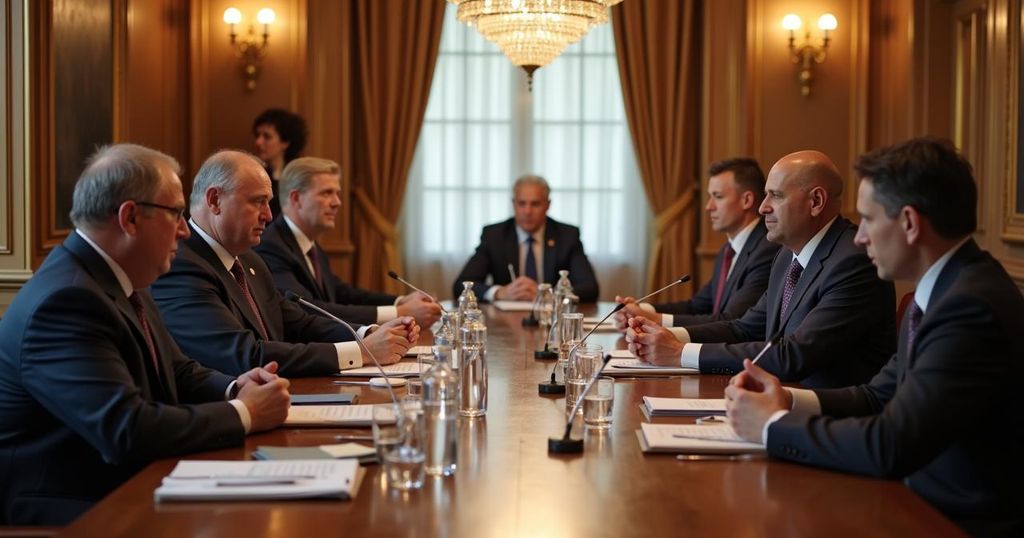Iranian Foreign Minister Abbas Araghchi met with Mohammed Abdelsalam, a senior Houthi official, in Muscat as part of a broader diplomatic tour in response to escalating tensions following an Iranian missile attack on Israel. The discussions included calls for an end to hostilities in Gaza and Lebanon and emphasized the need for diplomatic resolutions to regional conflicts.
On Monday, Iranian Foreign Minister Abbas Araghchi conducted a meeting in Muscat with Mohammed Abdelsalam, a senior official representing Yemen’s Iran-aligned Houthi movement. This meeting forms part of Araghchi’s extensive diplomatic outreach across the region. The Iranian Foreign Ministry disseminated photographs from the discussions, emphasizing the consultations with regional allies amid retaliatory vows from Israel following an Iranian missile attack. The meeting included discussions on pressing regional developments, particularly concerning Lebanon and Gaza, where Israel is engaged in conflict with both Hezbollah and Hamas. Iran’s Foreign Ministry spokesperson, Esmail Baghaei, noted the imperative of ending what he termed “genocide and aggression” by Israel in these areas. In parallel, Oman’s Foreign Ministry acknowledged a mutual agreement to leverage diplomacy in resolving regional conflicts. This engagement follows Iran’s missile strike on Israel, responding to the elimination of militant leaders linked to Tehran, prompting Israeli threats of retaliation. The persistent nexus between the Houthis, Hezbollah, and Hamas underscores Iran’s strategic coalition opposing Israel. Araghchi’s diplomatic tour also included previous visits to Baghdad, Qatar, and Saudi Arabia, concentrating on efforts to achieve cease-fires and contain regional conflicts. He reiterated Iran’s readiness for a potential wartime scenario but articulated a preference for peace.
The recent diplomatic activity undertaken by Iranian Foreign Minister Abbas Araghchi is significant in light of the prevailing tensions between Israel and Iran-aligned militant groups in the region. The Houthis in Yemen, alongside groups such as Hamas and Hezbollah, represent a coalition that is often referred to as Iran’s “axis of resistance,” which actively opposes Israeli interests. This coalition has become increasingly relevant amidst escalating military actions and retaliatory threats following an Israeli assassination campaign against militant leaders linked to Iran. Araghchi’s strategic consultations across various Middle Eastern states, including Oman, Saudi Arabia, and Qatar, are aimed at addressing these conflicts while promoting potential diplomatic resolutions.
The meeting between Abbas Araghchi and Mohammed Abdelsalam highlights Iran’s commitment to sustaining alliances with key regional actors amid mounting tensions with Israel. Through diplomatic engagements, Araghchi aims to navigate the complex geopolitical landscape shaped by ongoing conflicts in Gaza and Lebanon, advocating for a cessation of hostilities and the use of diplomatic channels to resolve disputes. The Iranian government’s stance continues to emphasize preparedness for conflict while voicing a strong preference for peace, reflecting the multifaceted dynamics of Middle Eastern politics.
Original Source: www.voanews.com






